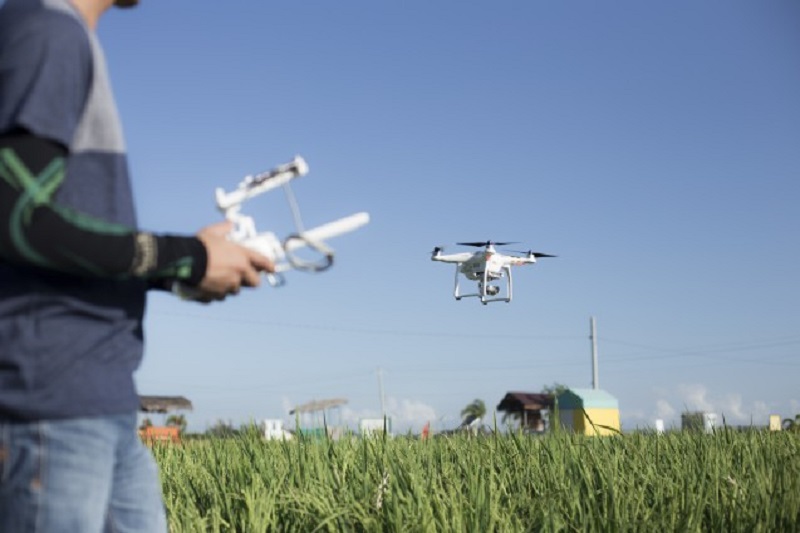
The adoption of the drone technology in farms is being pushed by the Philippine Rice Research Institute (PhilRice).
As reported, some of the benefits to be gained upon adoption include cutting production costs and encouraging the youth to plant rice.
The PhilRice FutureRice Program (FRP) leader explained that although the drone technology is already commercially available, it has not been applied in rice farming yet.
The Institute and other public and private organisations are already exploring the technology so that it can finally be brought to the ground, making it less elusive to Filipino rice stakeholders.
To further this, the Institute recently signed a Memorandum of Agreement (MoA) with a Davao-based drone firm, New Hope Corp., in order to advance research in the rice sector.
Possible use of drone in fertiliser application, seeding and pest management are all covered by the signed MoA.
Results of the initial testing that was conducted showed that only 16 litres of spray per hectare were used by drones to apply fertiliser as compared to the 160 litres per hectare applied by farmers using the knapsack.
Farmers may turn sceptical on its effectiveness for pest management with the drastic change in volume.
Add to that the amount of investment needed, which is roughly ranging from US$ 9,500 – US$ 19,000 (PHP 500,000 to PHP 1 million).
Additionally, further research and farm demonstrations may yield possible reduction in the seeds used per hectare from two to three bags to just one bag through the use of drones.
The Program Leader added that the promotion of the potential of drone technology in rice farming would cut farmers’ production costs while luring young people back to farming.
By bringing it to the ground, rice stakeholders in awe of this flying technology would cease to feel that it is out of reach.
Drone spraying can be made accessible to farmers at a price roughly ranging from US$ 16.14 – US$ 28.49 (PHP 850 to PHP 1,500) rental fee per hectare through service providers.
According to a recent report, the Department of Agriculture (DA) is promoting the use of drone technology to reduce the cost of producing rice, vegetables and other crops amid the increase in the price of inputs, such as seeds and fuel.
In April, the Department said it would spend at least US$ 142,437 (PHP 7.5 million) to pilot test a drone spraying technology in a 5,000-hectare farm in Benguet.
It took the drone just a few minutes to cover a patch of vegetables and according to the data provided by the Japanese service provider company, which conducted the test.
It will only take 10 minutes to cover one hectare.
The drone could be used to spray foliar fertiliser and other biological pest control solutions and is expected to bring down farm operations costs and increase productivity.
With the use of remote-controlled drones, the DA Secretary said farmers will also avoid getting sick since they will not be in direct contact with the biological or chemical mists emitted by handheld sprayers.
The Philippine Rice Research Institute is a government corporate entity under the Department of Agriculture.
It was created to help develop high-yielding and cost-reducing technologies so farmers can produce enough rice for all Filipinos.
Contact: Fly Dragon Drone Tech.
Email: frank at dronefromchina.com
Add: NO. 9 Dayu Road PiDu distric, ChengDu 611730, China